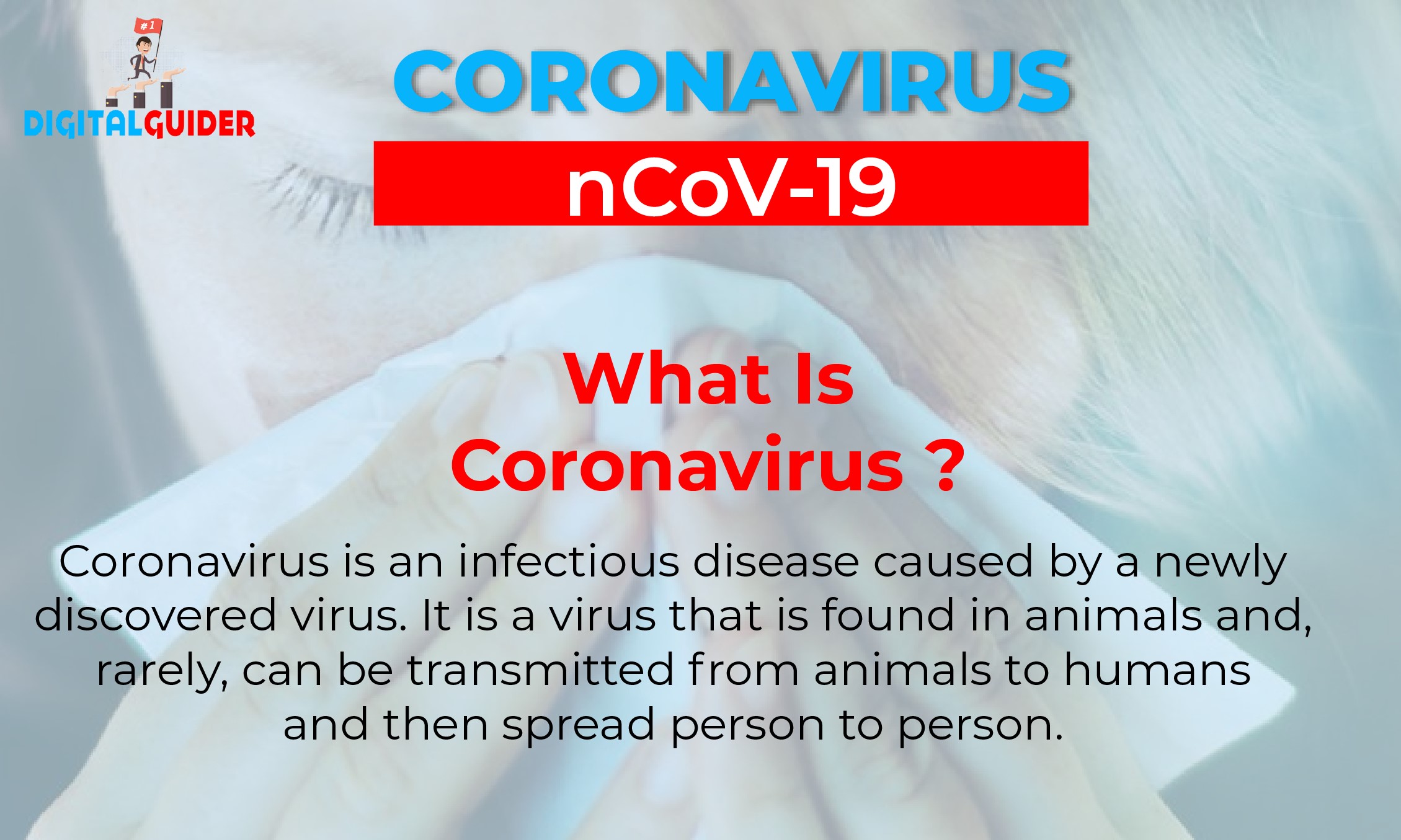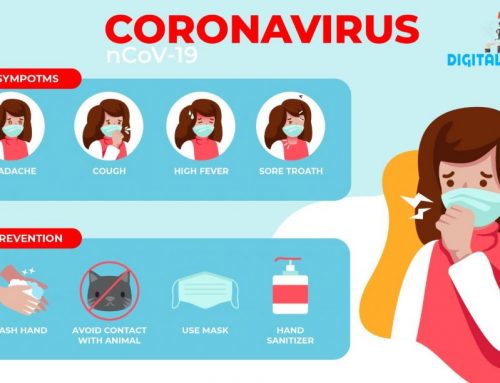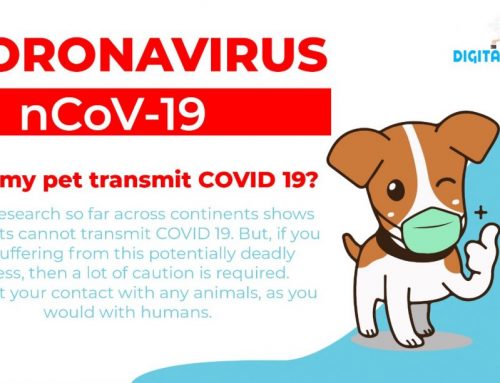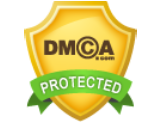COVID-19: Beginning Stage, Symptoms, Treatment:
Coronavirus belongs to the family of viruses that can cause illnesses such as–common cold, severe acute respiratory syndrome, and the Middle East respiratory syndrome. The virus is now known as the severe acute respiratory syndrome coronavirus 2 (SARS-CoV-2). The disease it causes is known as coronavirus disease 2019 (COVID-19). The cases of COVID-19 are increasing day by day. It is no surprise that COVID-19 has engulfed the whole world. US public health groups, such as the World Health Organization (WHO) are seriously monitoring the situation and updating it on their websites.
Before going into the depth of the topic, let’s know what is Coronavirus (COVID-19) and how the outbreak started:
What Is Coronavirus:
Coronavirus is an infectious disease caused by a newly discovered virus. It is a virus that is found in animals and, rarely, can be transmitted from animals to humans and then spread person to person. In addition to COVID-19, other human coronaviruses have included:
- The MERS virus, or Middle East Respiratory Syndrome.
- The SARS virus, or Severe Acute Respiratory Syndrome.
How Is COVID-19 Spread?
COVID-19 can spread from person to person through the droplets of coughs and sneezes. It has been detected among a huge number of people around the world and is declared as a Pandemic by WHO. The spread of this new coronavirus is being continuously monitored by the Centers for Disease Control (CDC), the World Health Organization and health organizations(WHO)
How Did The Outbreak Start?
The Novel Coronavirus outbreak began in Wuhan, China, in December, and is expanding with a dazzling speed keeps touching nearly every corner of the globe. Billions of people around the world have been sickened and thousands of others have died. Looking at this condition, the World Health Organization has declared the virus- a global health emergency and rated COVID-19’s global risk of spread and impact. On March 11, 2020, the World Health Organization has declared the outbreak a pandemic, a new disease that has spread around the world.
“Note: As per the lasted update (27th March 2020) over 5,49,604 confirmed cases and 24,862 deaths, AND 1,26,594 recovered cases of COVID-19 has found so far.”
What Are The Different Stages Of The Coronavirus Pandemic?
Coronavirus spread through different stages, here are the different stages of coronavirus:
Stage 1 | Imported Cases: this is the stage when the infection is imported into the country which was not the source of infection.
Stage 2 | Local Transmission:In this stage, infection transmits from one person to another.
Stage 3 | Community Transmission: this is the third stage of an outbreak. Community transmission is when a person gets infected even by traveling to the country affected by the outbreak. People get infected even by not coming in contact with the person having a virus.
Stage 4 | Epidemic: This is the last and the worst stage where the disease takes the shape of an epidemic with no clear endpoint.
Note:
However, there are no cases of community transmission in India, local transmission is rampant. As per the latest updates, 724 confirmed cases of coronavirus and 17 deaths so far having been reported from at least 23 states and Union Territories.
What Are The Symptoms?
Every day, doctors are learning new things about this virus. COVID-19 is a respiratory disease that affects differently in different people.
You may carry the virus for 2 days or up to 2 weeks before you notice symptoms.
Some common symptoms that have been specifically linked to COVID-19 include:
- Shortness of breath
- Having a cough that gets more severe over time
- A low-grade fever that gradually increases in temperature:
Other Symptoms Include:
- Aches and pains
- Sore throat
- Trouble breathing
- Blue lips or face
- Persistent pain or pressure in the chest
- Confusion
- Excessive drowsiness
- Few people can also report diarrhea, nausea or a runny nose.
The full list of symptoms is still being investigated by the experts and WHO.
Note:
People who have underlying medical conditions and are over 60 years old have a higher risk of developing severe disease and death.
Who’s At Increased Risk?
You are at high risk, if you come into contact with someone who’s carrying the virus, especially if you’ve been exposed to their saliva or been near them when they cough or sneezes.
You’re At High Risk If You:
- Live with someone infected.
- Providing home care to the infected one.
- Have an intimate partner who has contracted the virus
People who include the given below health conditions are at high risks:
- Lung conditions, such as COPD and asthma
- Certain heart conditions
- Immune system conditions, such as HIV
- Cancer that requires treatment
- Severe obesity
- Other health conditions, such as diabetes, kidney disease, or liver disease
Remember:
Pregnant women have a higher risk of complications!
What Treatments Are Available?
Currently, no treatment is specifically approved for COVID-19 and no cure for infection. Treatments and vaccines are currently under study.
- Seek immediate medical help if you think you have COVID-19.
Recently, A combination of anti-HIV drugs, which was ICMR approved for use in severe cases of COVID-19 infections, has failed initial clinical trials.
At the beginning of this month, a combination of anti-HIV drugs (Lopinavir and Ritonavir) was used to treat an Italian couple who had tested positive for the coronavirus infection.
Following their recovery, the Indian Council of Medical Research (ICMR) has approved the use of this drug combination in patients above 60.
What Are The Possible Complications From Covid-19?
The most possible and serious complication of a SARS-CoV-2 infection is a type of pneumonia that’s been called 2019 novel coronavirus-infected pneumonia (NCIP).
Following complications can occur in the people who have developed COVID-19:
- acute respiratory distress syndrome (ARDS)
- irregular heart rate (arrhythmia)
- cardiovascular shock
- severe muscle pain (myalgia)
- fatigue
- heart damage or heart attack
How To Prevent Coronaviruses
Prevention tips:
- Wash your hands frequently for at least 20 seconds
- Don’t touch your face when your hands are dirty.
- Don’t go out if you’re feeling sick
- Maintain a 1-meter distance from people
- Cover your mouth with your elbow whenever you sneeze or cough.
- Clean any objects you touch a lot.
- Use disinfectants on objects like phones, computers, utensils, dishware, and doorknobs.
First and foremost, don’t panic with the fear that you will get infected. Quarantine yourself if you suspect you have contracted the virus or have a confirmed test result.Follow simple handwashing and social distancing guidelines that may help protect you from being exposed to the virus. Stay calm and just follow your doctor’s instructions if you’re diagnosed with COVID-19 so you can recover and help prevent it from spreading!







